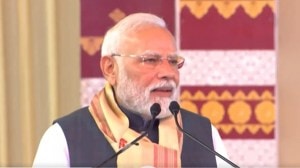In breakthrough,China to use spent fuel to extract uranium
After decades of research,China has made a breakthrough in extracting uranium and plutonium from spent fuel.
China has claimed a breakthrough in extracting uranium and plutonium from spent fuel,saying this would enable the country to run its nuclear power plants for three thousand years with existing uranium resources.
After decades of research,China has made a breakthrough in extracting uranium and plutonium from spent fuel,state-run CCTV announced on Monday.
It said China plans to set up 60 new nuclear reactors mostly 1000 MW or more and have a nuclear power productivity of around 75 million kilowatts by 2020.
Under the current nuclear power technology,only three-to-four per cent of nuclear fuel can be used. But,spent fuel possesses much more power and generates new nuclear material during its burn up,but is abandoned after its initial use.
The new technology will make nuclear materials 60 times more efficient,it said.
By using the new technology,uranium materials detected in China could fuel the countrys nuclear power plants for up to three-thousand years. Currently they can only fuel plants from between 50-70 years,the report said.
It was regarded as a significant breakthrough as China,which has 12 nuclear power plants is expanding nuclear power base with 23 more mega plants under construction.
China is also committed to build three more nuclear power plants to Pakistan including a giant gigawatt reactor. China in the past relied mostly on US,EU and Japanese companies to build the nuclear plants but in the last couple of year more indigenous companies acquired the know how to build the mega plants.
Besides this China is also constructing 23 machine sets to harness nuclear power,the largest among the 57 such sets in the world. Recent reports said China is already stockpiling big quantities of uranium to meet future demand. China currently produces around 750 tonnes of uranium.
The demand-supply gap of uranium is expected to exceed 10,000 tonnes by 2015 and reach nearly 30,000 tonnes by 2030,according to local experts. China is likely to double its uranium purchases to around 5,000 metric tonnes to build stockpiles for new reactors,according to Thomas Neff,a physicist and uranium-industry analyst at the Massachusetts Institute of Technology in Cambridge.
Photos



- 01
- 02
- 03
- 04
- 05



























